Simeonova, L. Herrin, Judith. Women in purple. Rulers of medieval Byzantium (book review) Christakoudi, Ph. & Spassov, M. Money, words, memory (Sofia, April 2003) Beyleri, R. Osmani, Tomor. The history of the Albanian alphabet - book review Beyleri, R. Recent monographs and contributions in Albanian linguists Njagulov, B. The French Association for Balkan studies Marinova, E. The History of Demetrios Cantemir (book review) Zaimova, R. Velkova, Sania. The Slav Neighbour and the Greek National Self Image 1912-1941 Konstantinova, Yu. Yannoulopoulos, Y. "Our Noble Blindness..." Foreign policy and "National Interests" from the defeat in 1897 to the Asia Minor Catastrophe (book review)
More...Keywords: Orient - Occident in 18th century;
Information about the colloquium "The Modernity: Past and Present", Sofia, Febr. 25-26, 2002
More...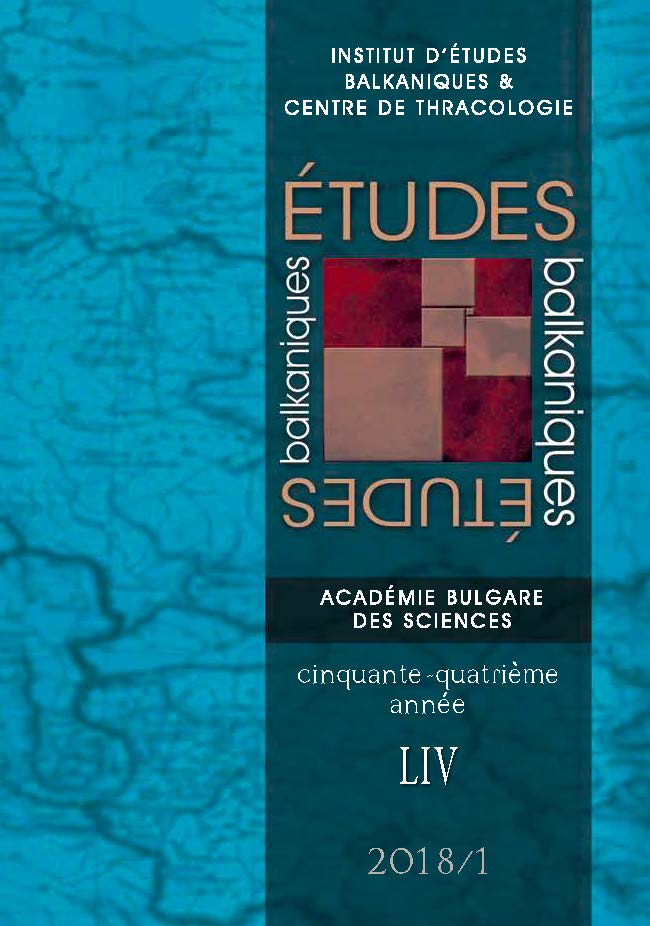
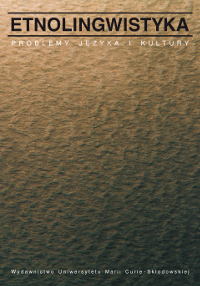
Keywords: us vs. them; stereotype of Pole; self-stereotype of Bulgarian
The article presents the stereotype of a Pole as it functions in the community of contemporary Poland-based Bulgarians (mainly in mixed marriages). On the basis of the material collected in 1996-1998 and 2002-2005 from over a hundred informants, Bulgarian immigrants living in 11 Polish cities, the author has established an inventory of the features characterizing the stereotype of a Pole. She underscores those which contrast the image of a Pole with a self-stereotype of a Bulgarian: the features have to do with worldview (the Polish religiousness being evaluated negatively as superficial and ritualized), standard of living (Polish cuisine is considered inferior to Bulgarian) or social life (excessive etiquette) etc. The Bulgarian stereotype of a Pole combines positive features (politeness) with negative ones (laziness, excessive drinking). Because there have been no periods of intense contacts or conflicts between the two nations, the only source of the stereotype is the elementary operation of comparing one’s own image with that of another. The operation is at work especially in the case of emigrants.
More...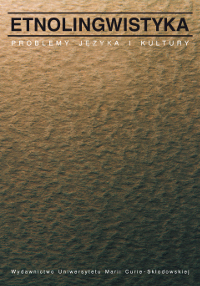
Keywords: national identity; ethno-religious identity; ethnic stereotype; us vs. them
The article deals with changes of ethno-religious identity and ethnic stereotypes. The opposition between US and THEM plays a major role in shaping one’s group identity and determining one’s relationships with others (those who belong to us, who are similar and friendly vs. those who do not, who are different and hostile). Of all types of identity, the ethno-religious identity is the least amenable to change in one’s own environment but may and does change in a foreign context, among displaced persons, emigrants etc. Important factors of identity are cultural in nature and have to do with religion, customs and language. Depending on how much the community wants its new members to assimilate, the mutual relationship between cultures involves adjustment or obliteration of cultural differences. Identity may change in various ways: when identity is changed, the characteristics and relationships of the representatives of one group change through self-identification and naming; when identities are exchanged, self-identification and self-reference change together with the group’s characteristics (members of the group call themselves representatives of another nation or denomination). The loss of identity and the acquisition of a new one are most of the time parallel processes but they are not mutually dependent. Some aspects of the loss are not so strongly connected with the acquisition (weakening, neglect, oblivion and renunciation), whereas others are (double identity, replacement of an ethic identity by another ethnic identity or by an identity of a different type, e.g. professional). The analysis considers the role of the US/THEM opposition in various types of changes of national identity.
More...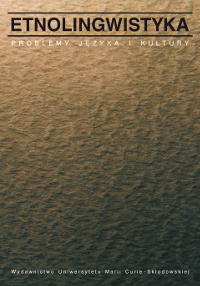
Keywords: FAMILY STEREOTYPE; POLISH-BULGARIAN RELATIONS; TOLERANCE
The article is based on anthropological and linguistic data obtained through fieldwork with Bulgaria-based Poles. A group of Polish residents permanently living in Bulgaria was interviewed between 1996 and 2001. The Poles, usually married to Bulgarian women, tend to live in big cities. Their stereotype of a Bulgarian is predominantly negative. A Bulgarian is usually viewed as possessing oriental features of character, which stems from the one-time Ottoman domination in the area. The content of the stereotype draws on everyday relations such as those between a man and a woman, husband and wife, a Bulgarian mother-in-law and Polish daughter-in-law, or between parents and children. It is also based on the attitude of Bulgarians to tradition, customs, folk culture, religion, etc. Features which are seen as typical of Slavs, such as hospitality, warm-heartedness and frankness, receive positive evaluation. Kindness to and tolerance of foreigners are emphasized as the most positive features of Bulgarians. A hypothesis is put forward that the predominantly negative stereotype of a Bulgarian entertained by Bulgaria-based Poles does not result from the negative evaluation of Bulgarians, but mainly from a highly positive auto-stereotype entertained by the Poles themselves.
More...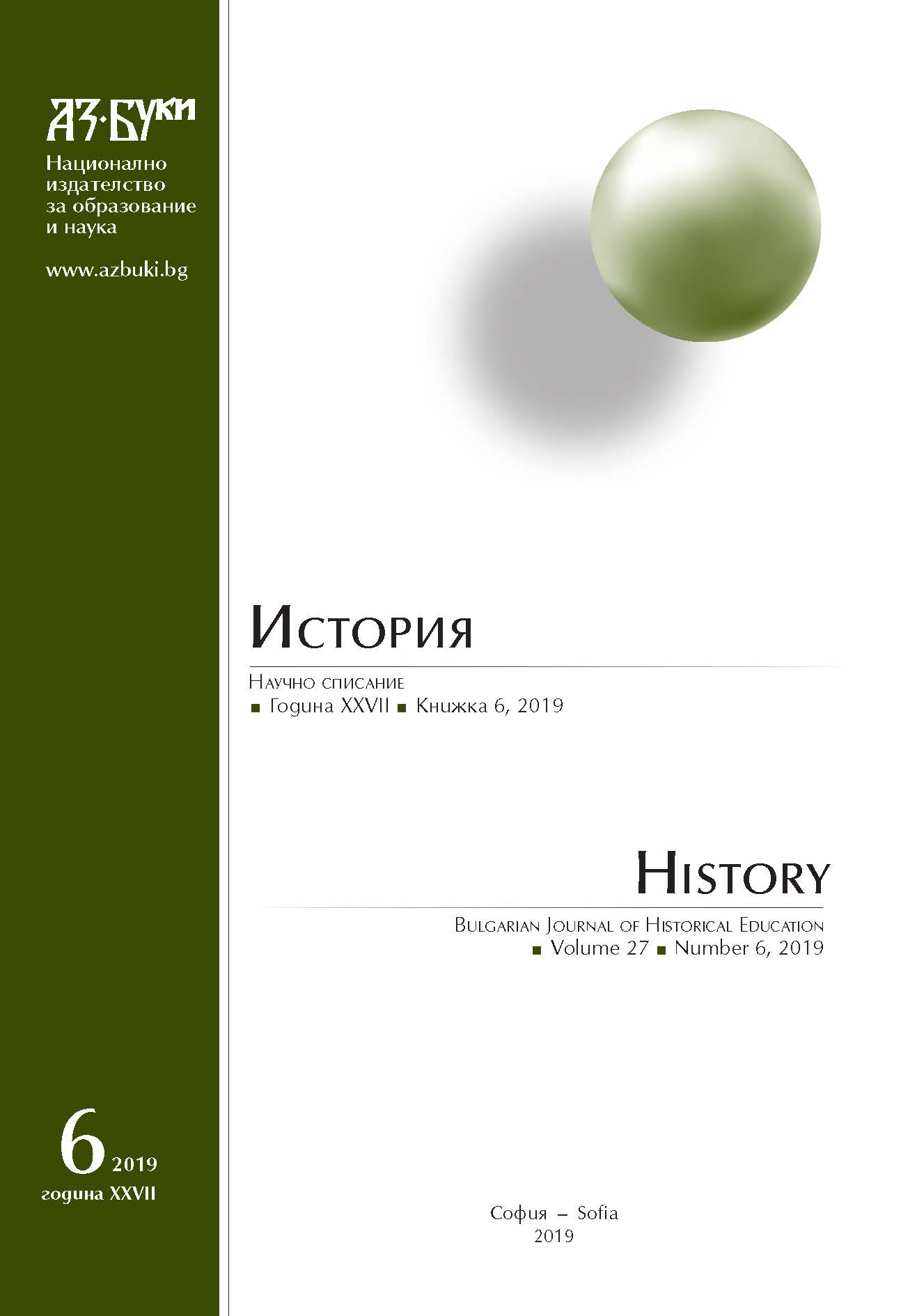
Keywords: Ihtiman; waqf; Ottoman empire; Principality of Bulgaria; Eastern Rumelia; Mihaloğlu family
The modern town of Ihtiman owes its establishment and further development during the Ottoman period to the members of the noble Mihaloğlu family who settled in Ihtiman and turned it into its residence and a center of its large pious foundation, founded to support the religious, charitable and educational institutions built in the town. The history of Ihtiman remains closely linked to the Mihaloğlu family ever since its establishment until the end of the Ottoman rule in the Bulgarian lands. The present article outlines the development of the waqf of Mihaloğlu Mahmud bey in the area of Ihtiman from its foundation till the first decade of the 20th century in an attempt to point out to its importance for the period of Ottoman rule as well as during the period immediately after the proclamation of independent Bulgaria when the so-called “waqf question” occupies a key place not only in the international relations of the young national state with the Ottoman empire but it also stood out as an essential problem in internal politics as well. The documents from the period after the Russo-Ottoman war of 1877–1878 allows for the elucidation of certain hitherto understudied questions connected to the last years of Ihtiman pious foundation’s existence in particular, as well as to the tracing out of the fate of the members of the Ottoman elite in the face of the Ihtiman waqf administrators during the new political and economic conditions of the national Bulgarian state.
More...Keywords: Karavelov; realism; urban prose; Chernyshevskiy; patriarchic culture; Serbian literature
The role of Karavelov in Serbian culture and literature was investigated as one of the pioneers of social realism and one of the main founders of the Serbian realistic narrative and criticism. In Serbian literature, Karavelov introduces new themes, new stylistic and rhetorical means and reveals new possibilities of narration.It was investigated originality of Karavelov's novel in regards to the novel of N. Chernishevski What to do? An unfinished novel Is it the fault of destiny? represents the first literary work on Belgrade's life in Serbian realism and certainly Philological Studies 17, 1, (2019) 147-164148the most importantwith the theme of social life after the novel by Jakov Ignjatovic. Patriarchal culture models that considerably shape urban, on the background of Central European and Western European civilizational influences, were also considered.
More...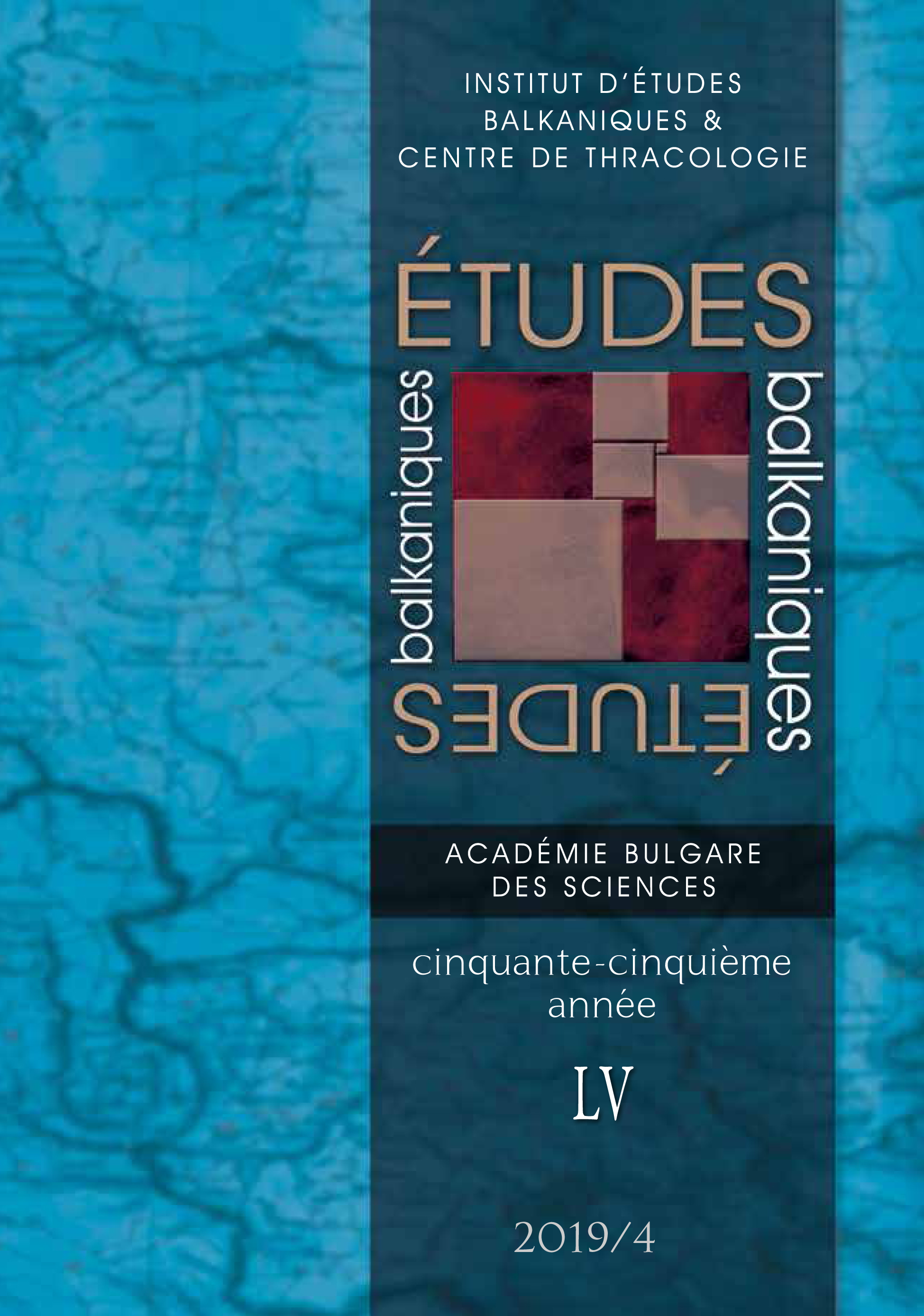
Keywords: Conquest of Constantinople; Bulgarian Nationalism; Bulgarian Literature; Svetoslav Milarov; Mental Geography; Historical Imagery;
The Ottoman conquest of Constantinople was a critical event in the history of the Balkans, that left its profound imprint on the notions of Bulgarians of their past and of their self-image. Behind the seemingly unambiguous evaluation of this event – a defeat of Christendom that has to do with the fall of the Bulgarian Kingdom – an observer could trace one more complicated, ambivalent picture. The paper marks some of its premises:A) The city was unsuccessfully attacked by Bulgarians several times in the past and they still think themselves through the prism of these wars. B) Byzantines (Greeks) and Ottomans (Turks) are the traditional enemies in the Bulgarian national mythology. Their conflict and their interrelations as a whole generate different reactions, multiple plots.C) In the nineteenth century when the foundations of Bulgarian nationalism were set up, Constantinople (Istanbul) was probably the city with the largest Bulgarian population and the stage for many of the important events in the Bulgarian society.This paper offers а brief review of the main types of Bulgarian texts from the 19th and early 20th centuries dealing with the fall of Constantinople, comparing them with some Byzantine sources, with some Greek and other interpretations of this event and focuses on one not so popular dramatic work, written in verses by Svetoslav Milarov in the early 1870s. Here the ambivalent attitude of a part of Bulgarian society to the Ottoman conquest of Constantinople was more visible.
More...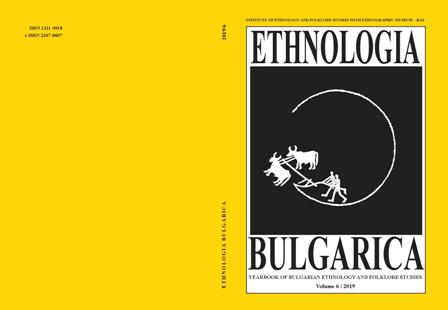
Keywords: cultural heritage and identity; public baths; restoration
This article is part of ethnological research on the role and function of the public baths in the urban space. Fieldwork was done in 2017 in the Gorna Banya quarter of Sofia. In this publication, the public baths are seen as one of the markers that construct local identity. At the beginning of the 20th century, the old Ottoman baths in the centre of Gorna Banya are destroyed and new ones are built, which are preserved to the present day. The baths are part of the everyday life of the local people, who use their resources for drinking, cooking, washing, but also for trade and medicinal purposes. Furthermore, the inhabitants continue to observe some traditional family and calendar customs around the public baths. Although the baths are closed, the square in front of them continues to playa central role in public life. This is evident, on the one hand, from the annual celebrations, and on the other hand, from the gatherings in front of the public baths summoned via Facebook. The public baths continue to be a central place around which life in the quarter is organized. The local authorities are looking for different ways to fund the restoration of the old building.
More...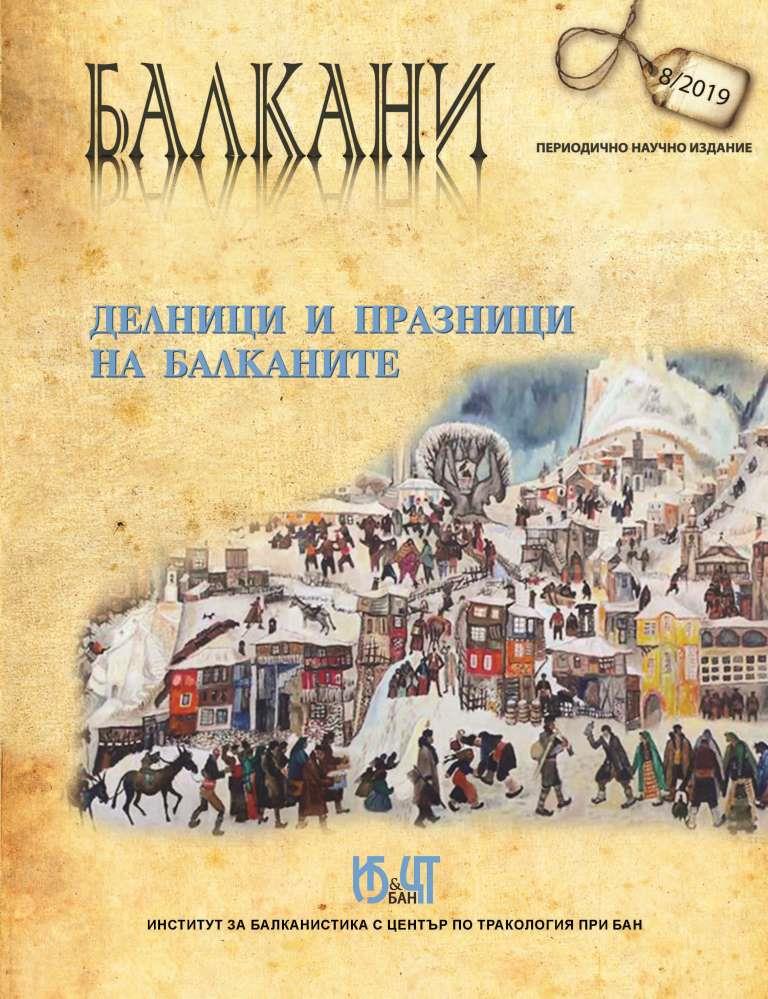
Keywords: Betrothal; robbery; memoirs; Ivan Naydenov.
The paper presents one episode in the life of Ivan Naydenov (1834–1910), Bulgarian journalist from Constantinople and social activist: the robbery that occurred when he was travelling to be engaged in his native Kazanlak. Different documents – newspaper information, memoirs and a short story – narrate the adventure and offer a slightly different image of two events that are interesting from an ethnographic and historiographic perspective.
More...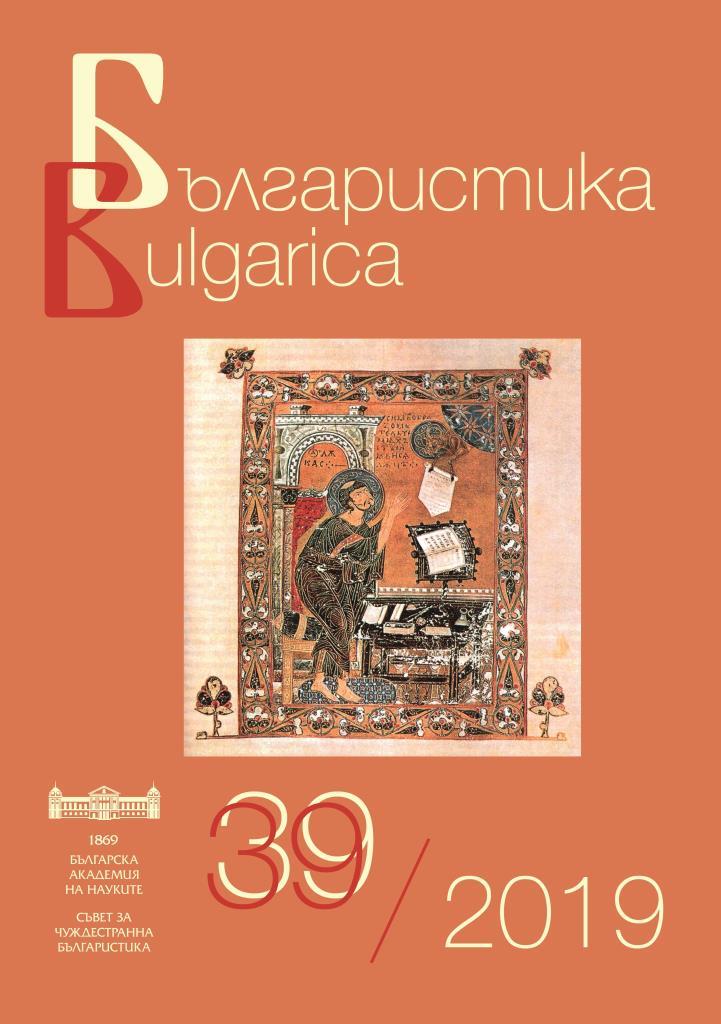
Content of the main Bulgarian scientific journals for the current year in linguistics, literature, history, folklore, ethnography, archaeology and art studies.
More...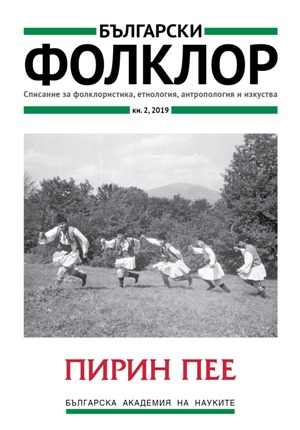
Keywords: masquerade; urban identity; festive life
The text analyzes specific examples from the festive life of the Hungarian cities of Mohács and Debrecen and in particular different manifestations of the contemporary masquerade game. The author pays attention to the construction of urban identity (part A) and searches for basic characteristics of the urban cultural space as a place of national memory (part B). The field research method is applied for the purposes of the present study. In conclusion it is noted that it is especially important for the participants to identify with a particular masquerade community that builds additional social networks outside of the carnival chronotope. The consistency with the culture and traditions of the city is also significant as far as these are manifestations of urban identity. The national identity finds expression in symbols and signs of the national manifested under conditions of deterritorialization. Through the self-perception of the people in the city (as people tied to it and belonging to it) and through their identification with it, the urban social space acquires its anthropological dimensions contributing to its unique spirit and particularity (genius loci).
More...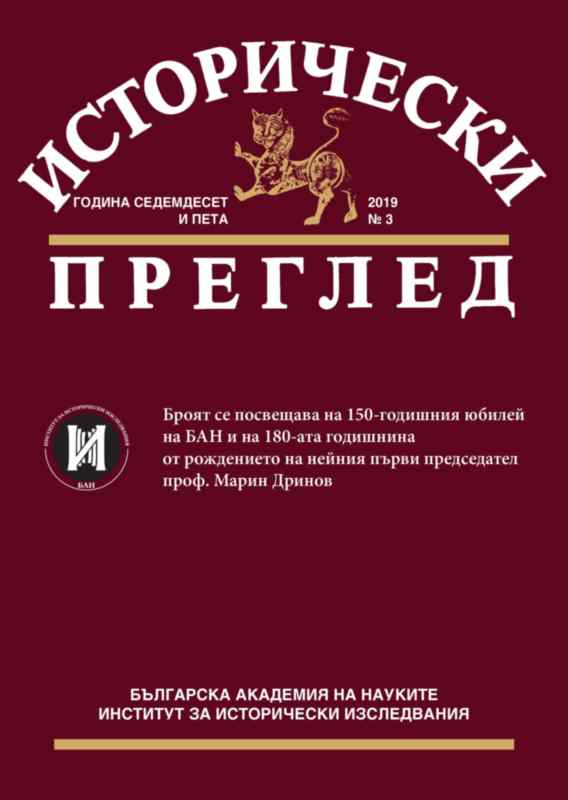
Keywords: spiritual development; Vasil Cholakov; Marin Drinov; religious propaganda;
The article deals with some aspects of the spiritual development, social activity, and the relationship between Vasil Cholakov and Marin Drinov. V. Cholakov is one of the first Bulgarians to receive training in Russia. Later, it was he who helped M. Drinov and N. Bonchev to follow in his footsteps. The article reveals the relations between them in the process of publishing the “Bulgarian Folk Collection” by V. Cholakov. The importance of the national culture for the preservation and development of the Bulgarians within the Ottoman Empire is also examined. The second problem addressed in the article is the attitude of M. Drinov and V. Cholakov to foreign religious propaganda and their struggle for the preservation of Orthodoxy. These aspects of their activities are essential in examining the struggle for the spiritual elevation and preservation of Bulgarians.
More...
Keywords: auxiliary sciences of history; paleography; guidance;
As a historical scholar, Professor Marin Drinov attached great importance to the auxiliary historical sciences and especially to paleography, which deals with written sources for medieval history. As a researcher throughout his life, he studied a vast amount of written documents. His desire was to encourage his contemporaries in Bulgaria to start collecting such sources from the Bulgarian lands. To this end, in the late 1870s, he compiled a short “Guide”, which published the magazine “Letostruy”, in which he gave brief guidelines on how to carry out this activity.
More...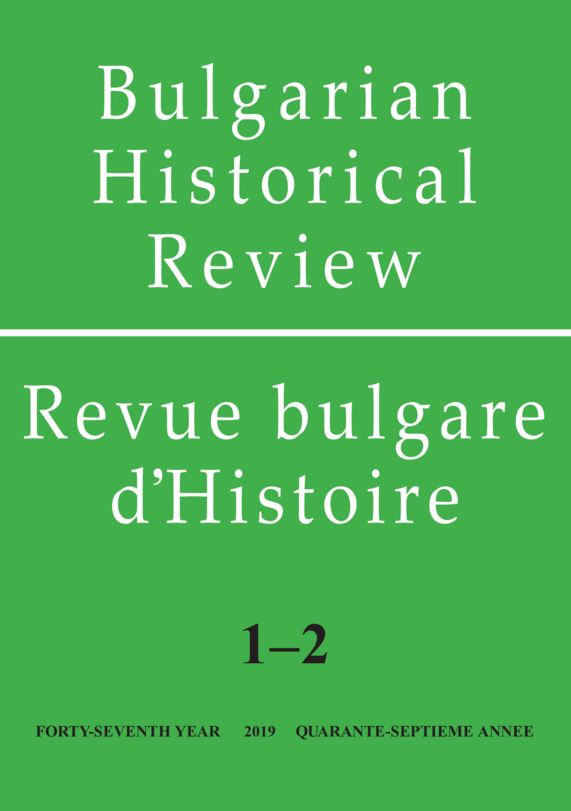
Keywords: monetary history; Bulgarian Revival; Ottoman Empire; coins; money and prices in the 18th – 19th centuries; Bulgarian bibliography;
The paper’s aim is a historiographical review and an analysis of the basic works published by Bulgarian scholars and devoted to the topic of money and prices in the Ottoman Balkans during the 18th and 19th centuries. This period is very important, both in a more general context – from a European and Ottoman perspective, as well as from a Balkan and Bulgarian point of view. We have used a chronological approach and have outlined two periods in our study – between 1878 and 1989 (the time of the Third Bulgarian Kingdom and the subsequent communist regime in Bulgaria) and from 1990 until today (i.e. the period after the democratic changes). The reviewed studies are divided into two main groups: (i) historical studies on money and prices and (ii) numismatic ones. We have given priority to some smaller publications, as they are less known to Bulgarian and foreign researchers. In general, larger studies are known to scholars dealing with the region’s monetary history.
More...